Politics
Palestine’s Ordeal in the Israel War
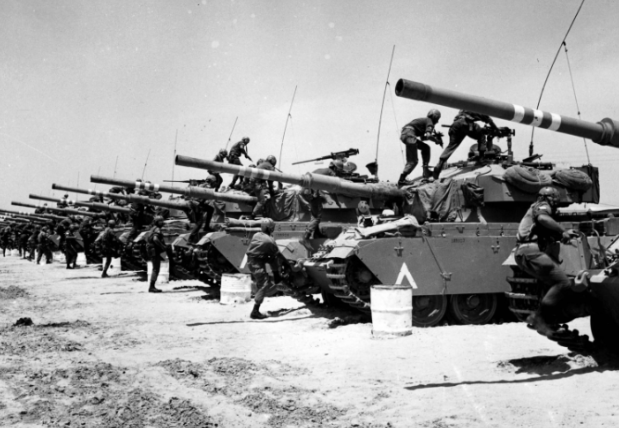
Across the time-worn landscapes of the Middle East, where the tapestry of human civilization is rich with the genesis of faiths and the scars of incessant strife, the specter of the Israel war rekindles its fiery presence. Within the contours of Palestine, bounded by the life-giving Jordan and the vast Mediterranean, echoes of an age-old lament resurface. This most recent surge in hostilities finds Israel and Hamas ensconced in the throes of their fiercest confrontation in years, a grim reminder of the enduring cycle of retaliation that defines this land. Rockets illuminate the night sky, and the clamor of devastation reverberates, signaling yet another chapter in the ceaseless narrative of conflict that grips this sacred yet troubled terrain.
The tale is as old as some of the cities that dot the landscape. The genesis of the current crisis can be traced to the cobwebbed corridors of colonial decisions and the fervor of a displaced people seeking a sanctuary—a national home. The Balfour Declaration of 1917 sowed the seeds of modern strife, promising a homeland for the Jews in the heart of the Arab world, without considering the tapestry of lives already interwoven into the land. It was a promise that bore the fruit of conflict, as two peoples came to claim one homeland.
The wars and whispers of wars have done little but change the nature of the chains that bind the Palestinian people. From the British Mandate to the partition plan of 1947, which cleaved the land without healing the divide, to the wars that followed—each step has been a note in a dirge for peace. The war of 1948 birthed Israel and etched the lines of battle in the blood and exodus of hundreds of thousands of Palestinians—a Nakba, a catastrophe, that shadows lives to this day.
The Six-Day War of 1967, a swift, startling reshaping of borders, left Israel in control of Gaza and the West Bank, and placed millions of Palestinians under occupation—a condition that half a century has done little to alter. Settlements, intifadas—uprisings of the desperate and the hopeless—peace accords and walls have followed, as the world watched, sometimes with bated breath, often with weary resignation.
Through the smoke of conflict, the voices of those who pay the highest price rise, raw and resonant. In the alleyways of Gaza, families huddle, speaking of homes lost and futures stolen, while in the cafes of Tel Aviv, others speak in low tones of security and survival. Each side grieves its dead, counts its wounded, and finds in the loss new reasons to distrust, new impetus for the next round of violence.
The latest spirals of violence in 2023 serve as a brutal reminder of this enduring enmity. As the dust settles on crumbled buildings, and the dead are laid to rest, the narratives of victim and aggressor are spun with the fervor of those who know that history is written by the survivors.
One must read between the lines of smoke that rise from the battered landscapes to understand this newest chapter in a history of discord. It is a familiar story of power and its pursuits, of land, identity, and the stark reality of military might. The blockade, a siege by any other name, imposed by Israel with the stated intention of security, chokes the life from Gaza, where the United Nations reports a crisis of basic human needs—water, electricity, freedom.
In the heart of this siege, Hamas—deemed a terrorist organization by many in the international community—governs, and in their governance and resistance, the lines between militant action and desperate defense are often blurred. Meanwhile, Israeli military campaigns—Operation Cast Lead, Pillar of Defense, Protective Edge—speak in the language of strength and retaliation, often leaving a trail of civilian pain in their wake.
What often escapes the broad strokes of analysis is the unyielding suffering of the common people, whose stories unfold in the shadow of the grand narratives. In Gaza, children grow in the bosom of blockade and war, learning lessons no child should know. In Israel, families live with the sirens and the sheltering, inheritors of a history of persecution and the persistent fear of annihilation.
As the sun sets on the smoldering horizons, the eyes of the old and the young alike hold stories that reporters seldom report—the simmering despair, the resilient hope, the ordinary dreams unfulfilled. It is a mosaic of human experiences, often lost in the loud proclamations of politicos and power brokers.
As the night deepens over Palestine, the stars are obscured by the smoke of burning aspirations, the air heavy with the smell of loss. The future is an enigma, as it has often been here, in these lands of prophets and prophec
ies. Will there be a new chapter that deviates from the cycles of violence, or will the next generation inherit nothing but the ruins of their predecessors’ failures?
In the quest for peace, some voices speak of a two-state solution, once envisioned as the road to reconciliation, now often seen as an ideal mired in setbacks and skepticism. Others call for a one-state reality, where rights and responsibilities are shared, but this too seems a distant dream in the harsh daylight of entrenched positions and mutual mistrust.
For those who stride the corridors of power, the puzzle of Palestine remains a challenge to be met with statecraft and strategies. But for those whose feet tread the worn paths of this scarred land, the puzzle is far more personal—a question of life, of the day-to-day struggle to find hope amid the ruins. It is, after all, their story—written in the language of loss and love, of blood and hopes—a story that the world must not forget.

-

 States2 weeks ago
States2 weeks agoPearlie Golden 93-Year-Old Black Woman Shot By Texas Cop
-

 States2 weeks ago
States2 weeks agoLynching Of Thomas Shipp Tragedy Of Racism Echoes Through History
-

 States2 weeks ago
States2 weeks agoTragedy Unveils Racial Tensions Tarika Wilson Story
-

 States2 weeks ago
States2 weeks agoLayers Of Racial Tension The Mario Woods Tragedy And San Francisco Path To Justice
-

 States2 weeks ago
States2 weeks agoThe Killing Of Terence Crutcher And The Fight For Racial Justice












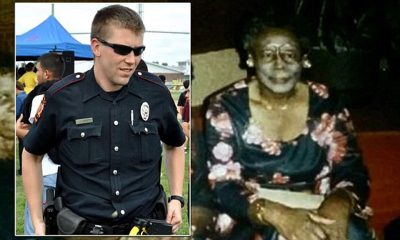
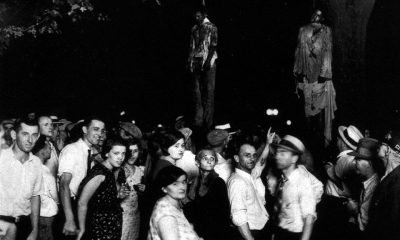
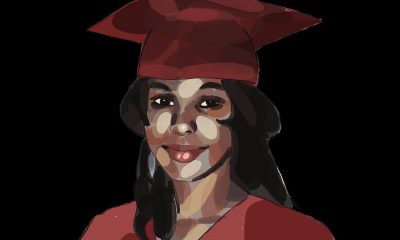
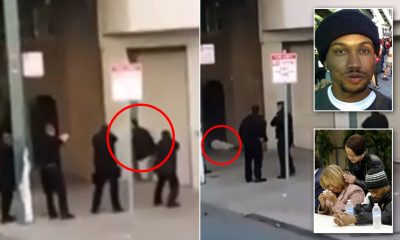
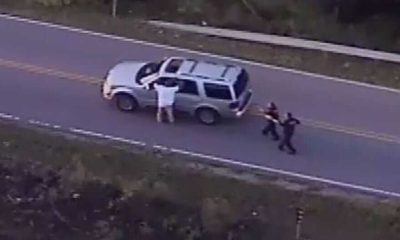
You must be logged in to post a comment Login